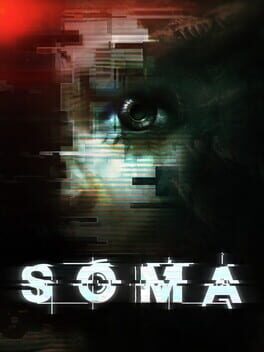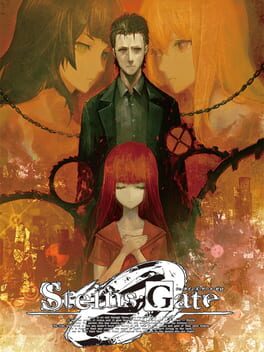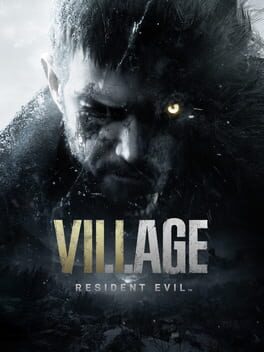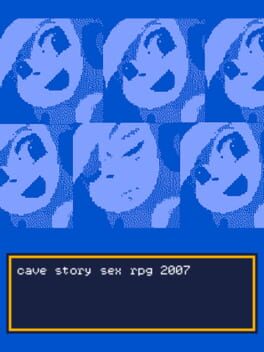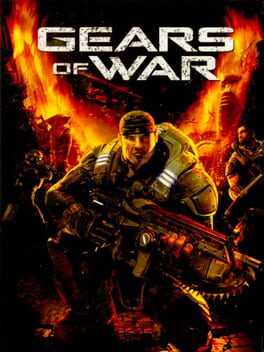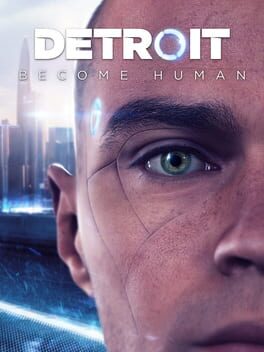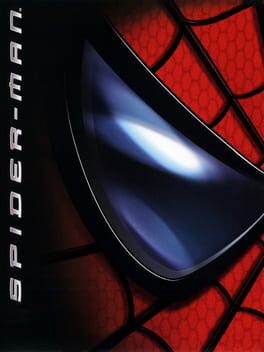FullyOttoMatic
BACKER
38 Reviews liked by FullyOttoMatic
Disco Elysium
2019
The Beginner's Guide
2015
This review contains spoilers
Recommended by gomit as part of this list.
When I was in middle school, I pirated a copy of RPG Maker VX Ace and said "I'm going to make a video game." My very first project was a joke game based on those MLG memes (the air horns, the crosshairs, "MOM GET THE CAMERA!", the works) and it was rough. Even in the limited, easy-to-use confines of RPG Maker, I could barely figure out how to program a map transition, or even set up a basic variable flag. I managed to program one boss fight and gave up. Over the years, ideas would come and go, only ever ending up half-baked ideas that were excuses to try something new, like writing music or learning digital art. An isometric Bully-clone. A Persona 3-style dungeon crawler. The mandatory Quirky Earthbound-Inspired RPG that all indie developers make at some point. A cosmic-horror JRPG with anime girls. All of these ideas living in the margins of sketchbooks or as slap-dash digital sprites drawn with my shitty dollar store mouse. It would take me until I was 20 (7 whole years from the day I pirated that copy of VX Ace!) to actually publish my first completed project. I would feign to call myself a "game developer", but I bring this up because I think it's a substantial part of my life that colors my view of The Beginner's Guide.
The Beginner's Guide is an hour long interactive experience that serves as a commentary on both artist and audience, and the relationship between the two. Before the twist revealed in the second to last chapter of the game, the use of this fictional developer (Coda), their oeuvre, and the Director's Commentary provided by the psuedo-fictional caricature of The Beginner Guide's own creator (Wreden) weave this tale of artistic expression and burnout through the medium most infamous for how it chews up and spits out its creators: video games. The arc we witness of finding the joy in creation, fixating on some kind of platonic ideal for your work, before spiraling and losing your passion, realizing that you're burnt out and that throwing yourself in the grinder day-in day-out isn't going to give you the results you want is something that I as a struggling creative myself can sympathize with.
But after that twist is revealed, that Coda didn't burn out from creative strain, but from being subject to an audience that wanted to live vicariously through his work and pick apart his very being, there is a much more universal struggle revealed: the need for validation and external approval, and the purpose of art. Wreden using Coda's work to validate himself by presenting it to other people, despite Coda's wish to keep his work private; Wreden modifying Coda's games to provide more concrete meaning so as to fit in-line with Werden's sensibilities, even when it was established in an earlier chapter that Coda believed that games didn't need to be so objective or finished; Werden trying so hard to understand Coda's work that he armchair analyzes a creative, when Coda never meant nor really wanted his work to be so emotionally open and raw. The age of hours-long YouTube video essayists and Armchair Critics on Media Logging Websites (wink wink nudge nudge) have made all of this behavior resonate years after release, of people trying to gain validation by analyzing art and showing that they get it, using media as a springboard to share their own ideas and struggles, gain their own audience via their ability to read into art, commodifying the idea of the creative and their struggles to make their body of work seem so much more unique and genuine and meaningful. Publishing anything runs that risk but nowadays putting even the slightest fragment of your soul into something potentially thousands if not millions can observe and pick apart and psychoanalyze borders on cosmic horror.
It begs the question of what art and self-expression is supposed to do for an audience. Do we really know an artist just because they made something emotionally vulnerable? Do we know them even if the art isn't overtly personal? Is it bad to not look into a work? Is it bad to look too much into something? How much should we analyze of an author's persona, and at what point does it stop being media analysis and shift into armchair psychology? That last minute twist raises a lot of tough questions about how we as consumers engage with art and what makes it work so well is that the twist doesn't invalidate the first 95% of the game. It manages to be about two conflicting subjects without really cancelling each other out with the questions being raised by both halves of the game, and as both artist and critic, I don't have any real answers for the conundrums it presents. Would it have been better to look at this as a metaphor for Werden and his release of Stanley Parable, or is that doing exactly what the Werden in Beginner's Guide did by trying to read into someone's personal life based solely on their published work? Am I wrong to have tried to connect this piece of art to my own life experiences, or did it help enhance my enjoyment? Am I engaging with this medium correctly by writing all these words? Would I ever want this to happen to me and my own body of work?
Who knows.
When I was in middle school, I pirated a copy of RPG Maker VX Ace and said "I'm going to make a video game." My very first project was a joke game based on those MLG memes (the air horns, the crosshairs, "MOM GET THE CAMERA!", the works) and it was rough. Even in the limited, easy-to-use confines of RPG Maker, I could barely figure out how to program a map transition, or even set up a basic variable flag. I managed to program one boss fight and gave up. Over the years, ideas would come and go, only ever ending up half-baked ideas that were excuses to try something new, like writing music or learning digital art. An isometric Bully-clone. A Persona 3-style dungeon crawler. The mandatory Quirky Earthbound-Inspired RPG that all indie developers make at some point. A cosmic-horror JRPG with anime girls. All of these ideas living in the margins of sketchbooks or as slap-dash digital sprites drawn with my shitty dollar store mouse. It would take me until I was 20 (7 whole years from the day I pirated that copy of VX Ace!) to actually publish my first completed project. I would feign to call myself a "game developer", but I bring this up because I think it's a substantial part of my life that colors my view of The Beginner's Guide.
The Beginner's Guide is an hour long interactive experience that serves as a commentary on both artist and audience, and the relationship between the two. Before the twist revealed in the second to last chapter of the game, the use of this fictional developer (Coda), their oeuvre, and the Director's Commentary provided by the psuedo-fictional caricature of The Beginner Guide's own creator (Wreden) weave this tale of artistic expression and burnout through the medium most infamous for how it chews up and spits out its creators: video games. The arc we witness of finding the joy in creation, fixating on some kind of platonic ideal for your work, before spiraling and losing your passion, realizing that you're burnt out and that throwing yourself in the grinder day-in day-out isn't going to give you the results you want is something that I as a struggling creative myself can sympathize with.
But after that twist is revealed, that Coda didn't burn out from creative strain, but from being subject to an audience that wanted to live vicariously through his work and pick apart his very being, there is a much more universal struggle revealed: the need for validation and external approval, and the purpose of art. Wreden using Coda's work to validate himself by presenting it to other people, despite Coda's wish to keep his work private; Wreden modifying Coda's games to provide more concrete meaning so as to fit in-line with Werden's sensibilities, even when it was established in an earlier chapter that Coda believed that games didn't need to be so objective or finished; Werden trying so hard to understand Coda's work that he armchair analyzes a creative, when Coda never meant nor really wanted his work to be so emotionally open and raw. The age of hours-long YouTube video essayists and Armchair Critics on Media Logging Websites (wink wink nudge nudge) have made all of this behavior resonate years after release, of people trying to gain validation by analyzing art and showing that they get it, using media as a springboard to share their own ideas and struggles, gain their own audience via their ability to read into art, commodifying the idea of the creative and their struggles to make their body of work seem so much more unique and genuine and meaningful. Publishing anything runs that risk but nowadays putting even the slightest fragment of your soul into something potentially thousands if not millions can observe and pick apart and psychoanalyze borders on cosmic horror.
It begs the question of what art and self-expression is supposed to do for an audience. Do we really know an artist just because they made something emotionally vulnerable? Do we know them even if the art isn't overtly personal? Is it bad to not look into a work? Is it bad to look too much into something? How much should we analyze of an author's persona, and at what point does it stop being media analysis and shift into armchair psychology? That last minute twist raises a lot of tough questions about how we as consumers engage with art and what makes it work so well is that the twist doesn't invalidate the first 95% of the game. It manages to be about two conflicting subjects without really cancelling each other out with the questions being raised by both halves of the game, and as both artist and critic, I don't have any real answers for the conundrums it presents. Would it have been better to look at this as a metaphor for Werden and his release of Stanley Parable, or is that doing exactly what the Werden in Beginner's Guide did by trying to read into someone's personal life based solely on their published work? Am I wrong to have tried to connect this piece of art to my own life experiences, or did it help enhance my enjoyment? Am I engaging with this medium correctly by writing all these words? Would I ever want this to happen to me and my own body of work?
Who knows.
Hades
2018
Soma
2015
Steins;Gate 0
2015
Steins;Gate 0
2015
Another story in the world we live in
I'll just say the title is misleading in the way you probably think what this game is.
Resonated with some lines but feels like this wasn't meant for me at all.
There really isn't much here and it's like 5 minutes but I hope the person is alright. This is just one of the many stories in this world.
I'll just say the title is misleading in the way you probably think what this game is.
Resonated with some lines but feels like this wasn't meant for me at all.
There really isn't much here and it's like 5 minutes but I hope the person is alright. This is just one of the many stories in this world.
Planescape: Torment
1999
Gears of War
2006
Mom: Don't play games until homework is done, I'll be picking you up from grandma's at x time
Me and my uncle: plays games as soon as we get home
Gears of War 1&2 were spent with Korn, Breaking Benjamin or Slipknot blaring on my uncle's ipod while we disobeyed our parents and had a blast. Vivid memories of this, very fond of these games.
Me and my uncle: plays games as soon as we get home
Gears of War 1&2 were spent with Korn, Breaking Benjamin or Slipknot blaring on my uncle's ipod while we disobeyed our parents and had a blast. Vivid memories of this, very fond of these games.
It takes a phenomenal amount of courage and confidence to make games that you know will disappoint, confuse, and anger people, especially when the reason is because those people love your previous games, and they are so attached to the characters and their memories that they don't ever want them to change.
But Naughty Dog does it, consistently, and with aplomb, delivering some of the most sculpted, crafted, affecting set piece games that exist. While it's impossible to ignore the specter of crunch required to create this level of detail and scope, it does not erase the admirable work and palpable love that has been poured into this game.
Like the first game, this is a game about love, but it's a much more visceral experience, bringing you through the lowest dregs of experience that can be attached to love. However, the value of the journey matches the cost.
But Naughty Dog does it, consistently, and with aplomb, delivering some of the most sculpted, crafted, affecting set piece games that exist. While it's impossible to ignore the specter of crunch required to create this level of detail and scope, it does not erase the admirable work and palpable love that has been poured into this game.
Like the first game, this is a game about love, but it's a much more visceral experience, bringing you through the lowest dregs of experience that can be attached to love. However, the value of the journey matches the cost.



